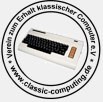Hello, everyone.
I don't sure, that this part of forum is good for my question. Sorry, if it's incorrect.
I have one question.
I searching any info about OS/2 1.10/1.20 in German-language.
Any info = screenshots; photos of disks; photos of box; floppy images.
I don't know, why this losted. But, i never saw this.
I know, that version 1.1 was named Betriebssystem. No more info about this.
Who has any info about this? May be someone has images of disks?
One member mentione, that was exist HP OS/2 1.1 De, but he don't has disks.
In Internet available HP OS/2 1.21 (A.01.21), but 1.10/1.20 losted.
Best regards.
–German

